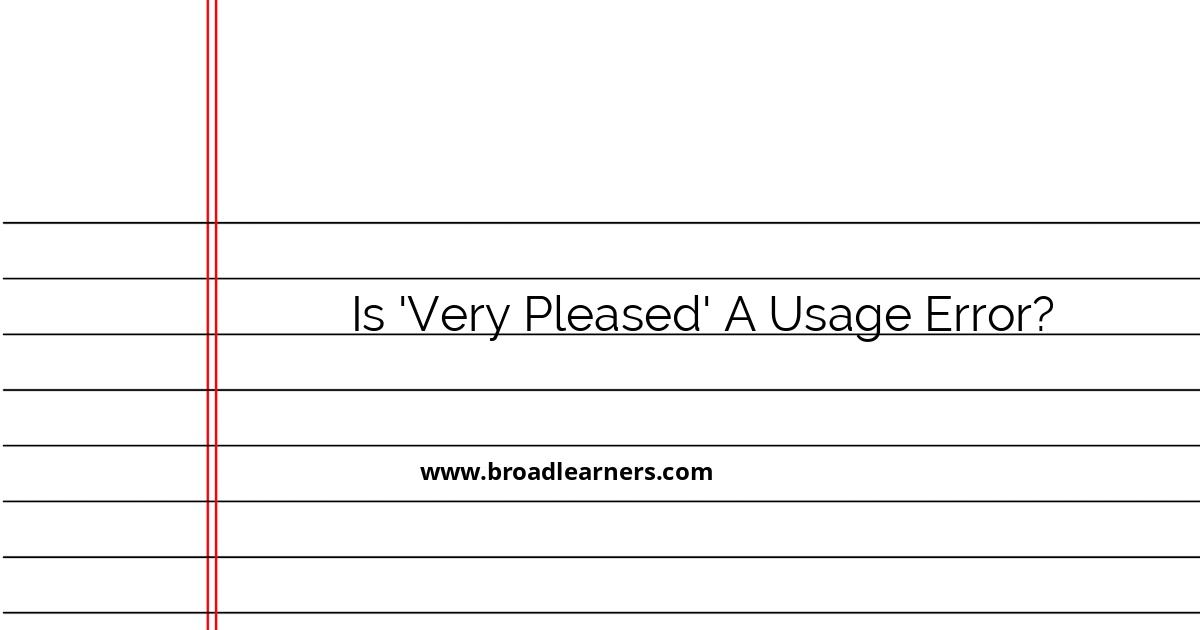The phrase 'very pleased' is commonly used in English to express a high degree of satisfaction or happiness. It is not considered a usage error; however, understanding the context of its use and potential alternatives will ensure more nuanced communication.
In formal or professional communication, you might come across the phrase 'very pleased' in various contexts. It serves to intensify the expression of being pleased, which means 'happy' or 'satisfied.'
Understanding Usage of 'Very Pleased'
Using 'very pleased' is generally correct and acceptable. The word 'pleased' expresses a level of satisfaction or enjoyment, and when prefixed with 'very.' it intensifies that feeling to convey a greater level of contentment.
Here's an example for clarity:
Example:
"I am very pleased with the project's outcome."
In this sentence, the speaker conveys that they are not just satisfied, but extremely content with the results of the project.
This form of expression is prevalent in both everyday conversation and formal communication.
Alternatives to 'Very Pleased'
While 'very pleased' is grammatically correct, there may be situations where more variety is needed to enhance your language. Here are some synonyms and alternatives to consider:
- Delighted: This alternative implies a higher degree of pleasure and happiness.
Example:
"I am delighted with how the presentation was received."
- Thrilled: This term reflects a sense of excitement and strong positive feelings.
Example:
"I am thrilled to announce the successful launch of our product line."
- Ecstatic: A term that conveys extreme happiness, often exceeding 'very pleased.'
Example:
"We are ecstatic about the turnout at the conference."
- Overjoyed: This suggests an intense emotional reaction to something positive.
Example:
"I am overjoyed that our team won the award."
Conclusion
In summary, using the phrase 'very pleased' is generally not a grammatical error, and it is widely used to express heightened satisfaction. However, employing a diverse vocabulary with alternatives such as 'delighted,' 'thrilled,' 'ecstatic,' and 'overjoyed' can enhance your spoken or written English, offering more precise expressions of emotion in various contexts.

Did I miss anything? Respond below